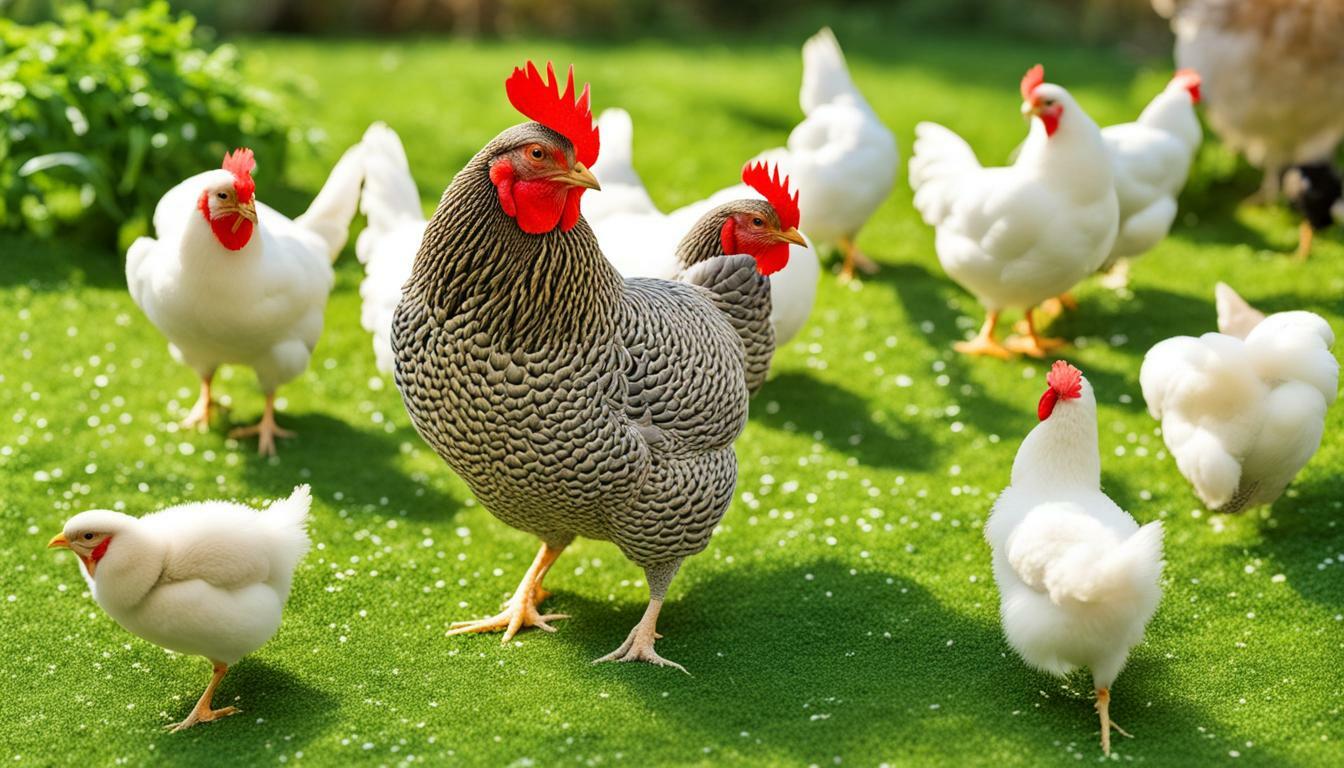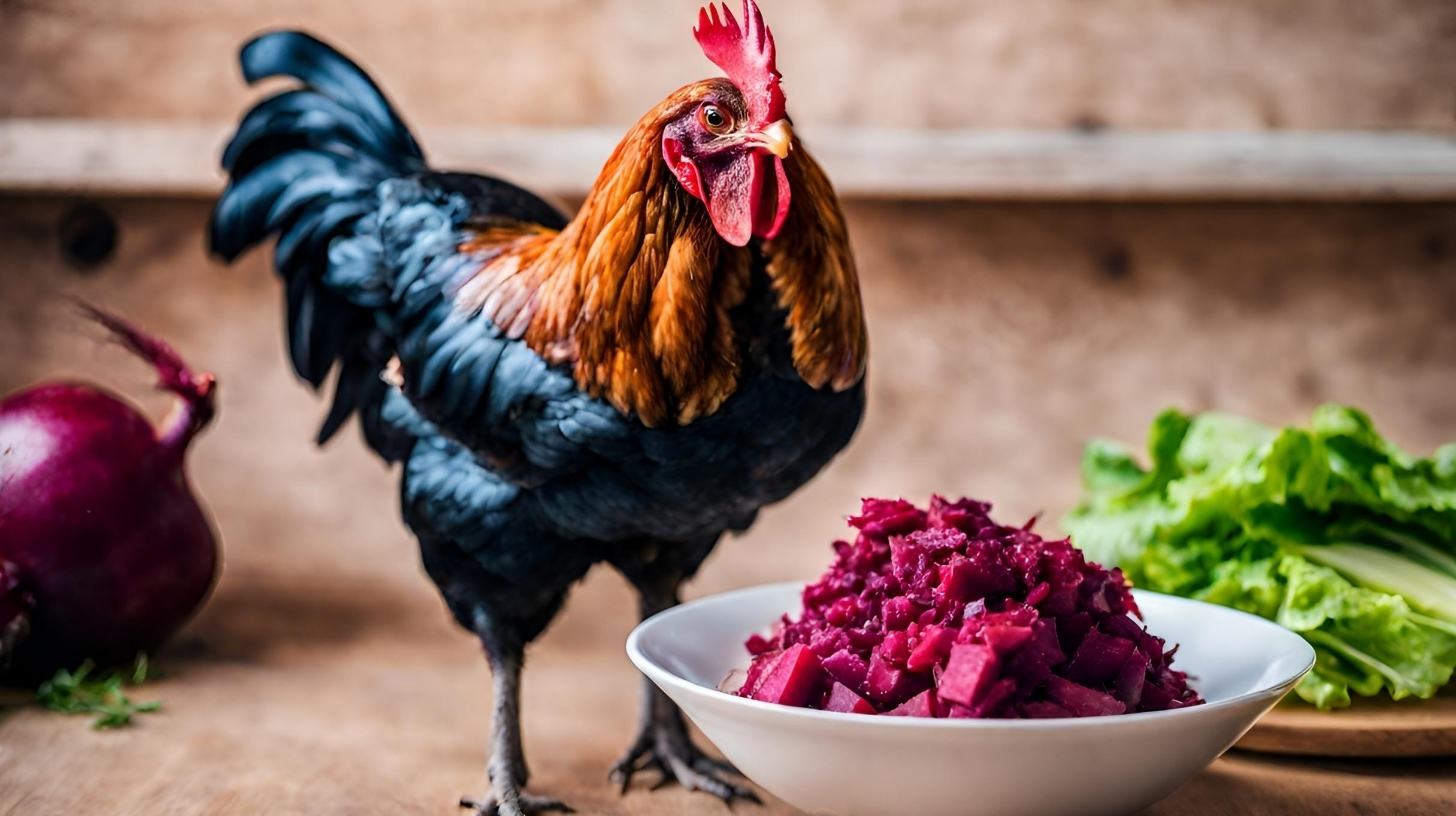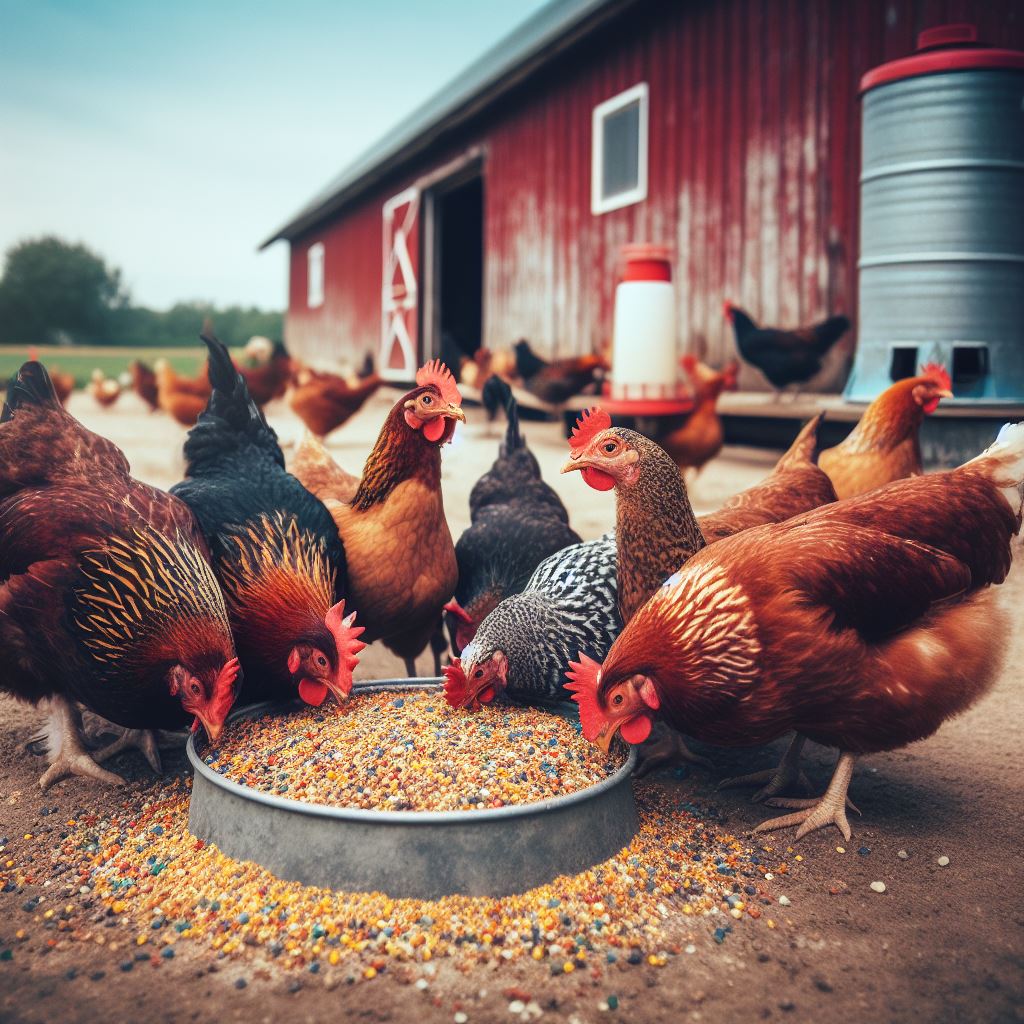Can Chickens Eat Chia Seeds? Discover Nutritional Benefits!

Table of content:
- Are Chia Seeds Safe for Chickens?
- What are the Benefits of Feeding Chia Seeds to Chickens?
- How Much Chia Seeds Can Chickens Eat?
- What Happens if Chickens Eat Too Many Chia Seeds?
- Should Chia Seeds be Soaked Before Feeding to Chickens?
- Do Chia Seeds Help Chicken Egg Production?
- Do Chia Seeds Make Chicken Eggs Healthier?
- Can Chia Seeds Cause Digestive Issues in Chickens?
- Are There Any Risks or Downsides to Feeding Chia Seeds to Chickens?
- Conclusion
Chia seeds have become a popular superfood for humans. Their high amounts of protein, fiber, and omega-3 fatty acids provide many health benefits. But can chickens eat chia seeds too?
Are Chia Seeds Safe for Chickens?
Yes, chia seeds are safe and even beneficial for chickens to eat. In moderation, chia seeds can be a nutritious supplemental treat or even part of a balanced diet for your flock.
Chia seeds contain essential vitamins, minerals, and antioxidants that can support your chickens’ health. They are also a good source of protein and fiber for chickens.
However, chia seeds do need to be fed in limited quantities to avoid potential issues. Too many chia seeds could cause digestive upset in some chickens.
Overall, chia seeds are a healthy snack or addition to a balanced diet for chickens. Let’s discuss the benefits and proper feeding guidelines.
What are the Benefits of Feeding Chia Seeds to Chickens?
Here are some of the main benefits of adding chia seeds to your chickens’ diet:
- Omega-3 fatty acids – Chia seeds are very high in omega-3s which can promote heart, brain, and joint health in chickens.
- Protein – Chia seeds provide a plant-based protein boost. This aids growth and egg production.
- Fiber – The fiber in chia helps digestion and gut health in chickens.
- Antioxidants – Chia seeds have antioxidant activity which supports overall health and immunity.
- Calcium – Calcium in chia helps build strong bones and eggshells. It complements calcium from oyster shell.
- Variety – Chia seeds add diversity to the diet which chickens enjoy. It also promotes foraging behavior.
Overall, the nutritional profile of chia seeds suits the dietary needs of chickens well. The omega-3s are the biggest benefit for flock health and egg nutrition.
How Much Chia Seeds Can Chickens Eat?
Chia seeds can be fed to chickens, but moderation is important. Follow these feeding guidelines:
- No more than 1-2 teaspoons of chia per chicken daily. Adjust amounts based on your chickens’ size.
- Feed chia seeds as an occasional treat, not a main feed ingredient. They should complement an overall balanced diet.
- Mix chia seeds into feed or offer them free-choice in a separate small dish. Do not let chickens overindulge if fed separately.
- Remove any uneaten chia seeds within 24 hours to prevent spoilage.
As a general rule, chia seeds should make up no more than 2-5% of a chicken’s total daily feed intake. This limited quantity allows chickens to safely benefit from chia’s nutrition.
What Happens if Chickens Eat Too Many Chia Seeds?
Eating too many chia seeds could cause some digestive issues for chickens. Potential problems include:
- Bloating or gas due to the high fiber content of chia seeds. Chia expands in moisture.
- Constipation since chia absorbs a lot of water. Be sure to provide plenty of hydration.
- Intestinal blockages if a large amount of dry chia seeds clump together. Always soak chia first.
- Nutritional imbalances since chia seeds are not a complete feed. Overfeeding them could lead to deficiencies.
- Decreased feed intake as chia seeds fill up chickens quickly. This results in less overall nutrition.
- Diarrhea if chickens eat very high amounts of chia seeds.
To avoid these issues, stick to the recommended 1-2 teaspoon daily serving size limit for chickens. Slowly introduce chia seeds to monitor for any digestive upset.
Should Chia Seeds be Soaked Before Feeding to Chickens?
It is best to soak chia seeds before feeding to chickens. Here’s why:
- Dry chia seeds can absorb moisture and expand in the digestive tract. Soaking them minimizes this risk.
- Soaking makes chia seeds softer and easier to digest.
- Pre-soaking releases more nutrients from the seeds.
- Soaked chia seeds are safer if accidentally over eaten. They will not form clumps or blockages.
To soak chia seeds:
- Combine 1 part chia seeds to 8-10 parts water.
- Allow to soak 10-15 minutes, stirring occasionally.
- Drain off any excess water before feeding to chickens.
- Only prepare what chickens will eat in one feeding. Refrigerate any leftovers.
Soaking chia seeds takes an extra step but is worth it for safety. Make it part of your treat prep routine.
Do Chia Seeds Help Chicken Egg Production?
Chia seeds can support egg production in a couple of ways:
- The protein, vitamins, and minerals in chia help nourish chickens and support egg development.
- The omega-3 fatty acids improve chicken health to keep hens in good laying condition.
- Calcium from chia seeds helps build strong eggshells from well-mineralized hens.
- Chia seeds provide variety that keeps chickens actively foraging and interested in feed. This supports consistent feeding needed for high egg production.
However, chia seeds should never exceed 5% of the daily diet. They can’t replace a complete layer feed formulated to fully support egg production. Think of them as a supplemental treat for layers rather than a main feed ingredient.
Overall, occasional chia seeds can benefit laying hens. But a balanced layer feed and flock management are far more important for maximizing egg yields.
Do Chia Seeds Make Chicken Eggs Healthier?
Yes, adding chia seeds to a chicken’s diet can result in more nutritious eggs, mainly due to the high omega-3 content.
Benefits of chia seeds for egg nutrition include:
- Increased omega-3 fatty acids in the egg yolks. This makes the eggs healthier for human consumption.
- Darker, richer yolk color from carotenoids in chia seeds.
- Improved egg shell strength since chia provides calcium.
- Possible reduction in cholesterol as chia seeds replace sources of saturated fats.
- Lower risk of salmonella contamination as chia supports chicken immunity.
The omega-3s make the biggest difference, boosting the nutritional value. Feeding up to 1-2 teaspoons of chia seeds per hen daily can naturally enhance their eggs’ quality and composition.
Can Chia Seeds Cause Digestive Issues in Chickens?
Chia seeds are unlikely to cause problems for chickens if fed properly. However, eating too much chia could result in:
- Constipation since dry chia absorbs moisture. Ensure adequate hydration.
- Potential intestinal blockage if dry chia seeds form a mass. Always soak chia first.
- Diarrhea due to excess dietary fiber from overfeeding chia seeds.
- Bloating or gas since chia seeds expand. Limit portions.
- Decreased feed intake and nutrition if chickens fill up on chia seeds.
- Nutritional imbalance if chia seeds make up too much of the diet.
Following the feeding guidelines of 1-2 teaspoons per chicken daily prevents digestive issues. Slowly introduce chia seeds while monitoring your flock. Discontinue use if any chickens show signs of distress or health problems.
Overall, moderation is key. Chia seeds can be fed safely to most chickens in small amounts. Good flock management prevents overconsumption.
Are There Any Risks or Downsides to Feeding Chia Seeds to Chickens?
There are a few potential downsides to consider:
- Since chia seeds expand in moisture, there is a risk of choked if they are eaten dry. Always soak chia seeds first.
- Chia seeds could potentially harbor bacteria or mold if left uneaten and allowed to spoil in the run. Discard any old chia.
- Chickens may overeat chia seeds if given unlimited access. Limit treat time to prevent obesity and nutrition issues.
- Chia seeds are not a complete feed. Relying on them too heavily could lead to nutritional deficiencies.
- Chia seeds are high in omega-3s. Excessive omega-3 intake could inhibit calcium absorption.
- Eating chia seeds instead of regular feed may temporarily reduce egg production until nutrient stores are replenished.
Overall, these risks are all manageable with proper feeding guidelines. The benefits of chia seeds outweigh the potential downsides for most backyard chicken-keepers. Using chia as an occasional treat or limited supplement poses little risk to chickens’ health.
Conclusion
In summary, chia seeds are a safe, healthy, and nutritious supplemental feed for chickens when used properly. Their excellent nutritional profile provides benefits like omega-3s, protein, fiber, antioxidants, and calcium.
Feed chia seeds in moderation following the recommended daily serving guidelines. Soak chia seeds before feeding and discard any leftovers to prevent spoilage. Monitor your flock closely and discontinue use if any digestive issues arise.
Adding some variety with nutritious treats like chia seeds can naturally boost chickens’ diet, health, and even egg nutrition. Chia seeds are a great occasional addition, but should always be combined with a nutritionally balanced layer feed for optimum flock nutrition. Follow feeding best practices and both you and your chickens can benefit from the superfood powers of chia seeds!
Welcome. I’m Adreena Shanum, the proud owner of this website, and I am incredibly passionate about animals, especially poultry. I founded adreenapets.com as a labor of love, stemming from my desire to share my knowledge and experiences with poultry enthusiasts worldwide.




